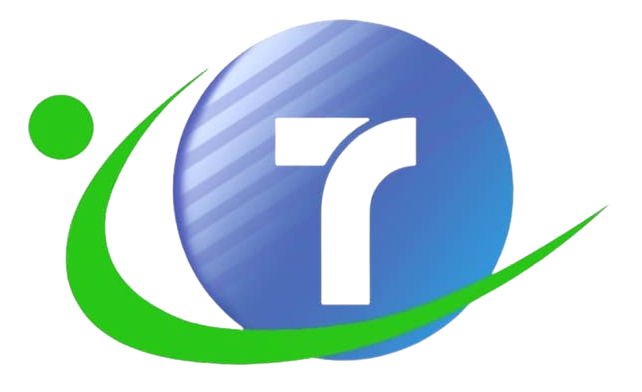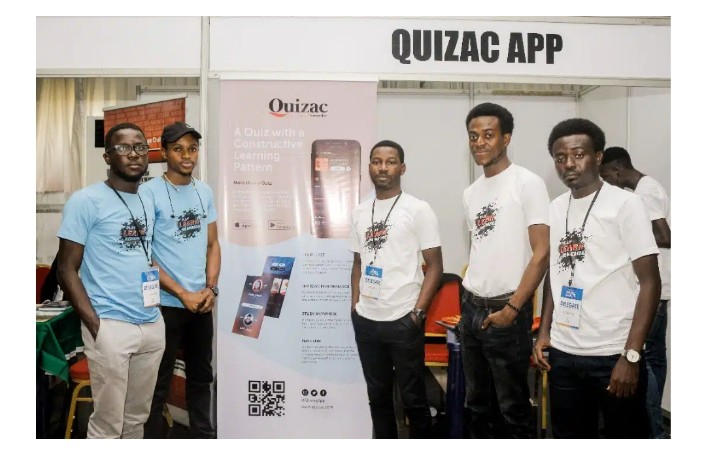
This startup turned down $250k, and now it's shutting down

Over one-fifth of primary-age children are out of school, and almost 60% of youth between the ages of 15 and 17 are not in school.
These were some of the considerations that drove four starry-eyed youths to build Quizac in 2019. Two years prior, while undergoing the compulsory National Youth Service Corps (NYSC) in Nigeria’s capital of Abuja, they had built an online card game for Christians.
Although this wasn’t their first attempt at building a product, it was received with much enthusiasm by many churches in the city. Done with NYSC and needing something more stable, they relocated to Lagos, where much of Nigeria’s startup activity takes place.
This time, they built an edtech and split themselves in two. The result was Transcademy, an online platform to help parents stay on top of their ward’s academic performance, and Quizac, a gamified learning platform.
They ultimately chose Quizac because it was easier to sell.
Gamifying learning for the African child
As many guardians would tell you, getting young children to study is a herculean task, but getting them to play games is much easier. Noticing the increase in smartphone penetration among Nigerians, the Quizac team decided to build a gamified product for kids in Africa; think Duolingo, but for more than languages.
It was almost an instant hit among parents who could positively tap into their children’s desire to play video games.
At its peak, the platform had more than 12,000 learners. Building a gamified learning platform required content, which the startup chose to crowdsource. Contributors created content that the Quizac team vetted before it was added to the platform.
In addition to this initial vetting process, learners provided added quality assurance by voting on the relevance of the content. Each question needed an acceptance rate of at least 95%, and any score below this could lead to the contributor getting barred or having their content taken down. It attracted contributors from three countries – Nigeria, Ghana, and Canada – while students came from 90 countries, including Nigeria.
In search of a monetisation strategy, it first tested advertisements, but worried that they would impact the user experience, it shut that down and decided to charge a fee to use them. First, it charged students, but after realising parents were responsible for the buying decisions, they changed their approach. Schools could buy quarterly subscriptions for students priced at ₦80,000, ₦250,000, and ₦350,000.
And businesses came calling
Despite getting positive feedback from users, Quizac struggled with monetising its core audience – students.
“We got most schools to pay for the third tier, which is about ₦85,000 per year, but we would spend more than ₦100,000 before we could close a school,” Tade Samson, Co-founder and CEO told Techpoint Africa.
Meanwhile, it was getting attention from corporations that had discovered it during the COVID-19 pandemic.
"Every corporate organisation wants to be able to bring the best productivity out of their staff, and the best way to do this is not by forcing them to take courses on Udemy or Coursera. Some of those staff take those, but they take them just because they want to keep their jobs. Some of the organisations that recognised what we were doing wanted their staff to be able to learn, and at the same time they wanted them to have fun doing it."
Corporates could set their employees up on Quizac and include rewards that employees could unlock after meeting certain milestones.
Compared to the schools, the sales cycle was shorter and often required a meeting and a demo to arrive at a decision. Perhaps more importantly, it generated more revenue from businesses and they could charge as much as ₦500,000 per quarter.
With this discovery, it began working on a pivot but remained reluctant to abandon its original vision. It currently has six corporate clients and at least one pan-African brand.
The beginning of the end
Buoyed by the initial traction, Quizac set out to raise $250,000 from investors. Up to this point, it had been primarily funded by the founders and had only raised ₦2.5 million from friends and family. There was also $5,000 from winning some pitch competitions.
In 2022, it received a term sheet for $250,000 from investors, including an unnamed South African VC, which it declined because of the terms. The investment valued the startup at roughly $1.7 million. Instead, it made a counteroffer.
“What we said to them was, ‘Okay, these are our milestones today. We're going to go back to the drawing board. We're going to ensure we hit every target that we’ve set, and then we're going to come back and make a counteroffer on this.'”
That was 2022, and what followed was a significant scale-down on investments globally. VC investments in the United States, for example, fell 35% that year, and while Africa remained resilient, it was only a matter of time before investors on the continent followed suit.
Quizac had two major targets: the first was closing a deal with Microsoft that would see Quizac integrated with Microsoft Teams, and the second involved signing ten organisations with a minimum of 1,000 employees. It hit none of those targets. Instead, numbers began dropping.
While it was reluctant to complete a pivot to serving corporate clients, Quizac’s value proposition was not initially clear to businesses, and it was difficult to convince them.
"In one of our meetings with some of our corporate organisations, they asked themselves what value Quizac was providing. There was this silence in the room before they said, 'Quizac is just fun. We use Quizac to create these engaging quizzes that everybody likes.’ That's fine for us, but the problem with that kind of product is that we're creating something like a vitamin, and when there are finite resources, we will be the first to be let go."
Following this feedback, it decided to create a gamified platform focused on skill acquisition. But numbers continued falling, and in June 2024, it sent out emails to users stating that it would stop operations at the end of August 2024.
According to Samson, most of Quizac’s challenges can be traced to finance. Being self-funded and without much runway, it needed to get its monetisation plan right but struggled with that. Throughout its lifecycle, it made a little over ₦7 million in revenue.
Turning down the investment offer it got would have bought it some time, and while Samson acknowledges that it may have been the wrong decision in hindsight, he insists he doesn’t regret doing so.
There were also life changes for the founders that limited their ability to execute their plans. While they started the business in their early twenties, most of them got married or relocated from Nigeria as the years went by and they needed more stable incomes.
Quizac could not provide that, and so they split their time between regular jobs and the startup. Naturally, Quizac got the short end of the stick.
There were also infrastructural challenges for students, its biggest customer segment. While its corporate offering served people who could often afford the cost of an Internet subscription, schools began demanding an offline app, which Samson says the team was unwilling to commit resources to.
Although it needed money to fund operations, the team was reluctant to resume fundraising, hence its decision to shut down.
“We can’t take an investor’s money, regardless of how small, and start discussing shutting down the product in its entirety shortly after.”
Looking ahead
Contributors are currently in the process of moving their content, but as the sun sets on Quizac, Samson shares two lessons for founders.
“Get your monetisation strategy right from day one and try as much as possible to move fast. If you need to change your product, change it as fast as possible.”
Education remains a problem in Africa, and he intends to return to the space with a different solution, although he’s uncertain of the timeline. Meanwhile, he acknowledges the vast array of problems that technology can address on the continent and is currently weighing his options for his next venture.
But if he had a second chance, he would focus all his energies on Quizac and not try to earn money elsewhere.
"For most of us in Africa, we don't have the resources to build a business, so while you're speaking with investors, you're speaking with the mindset of fear because you know that the survival of your business depends on its success. Right now, if I'm speaking with investors, I really don't care so much because I have the basics sorted out. I have the runway for my companies, even if it's self-funded for the next two years, sorted out, so there's that level of confidence that is going to make me stand with investors and negotiate better. Those were missing when we started Quizac, and I think those need to be corrected if I'm doing something else."
https://techpoint.africa/2024/08/13/why-quizac-is-shutting-down/